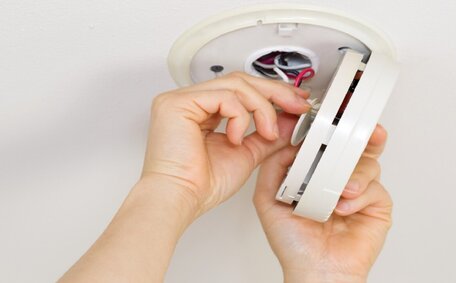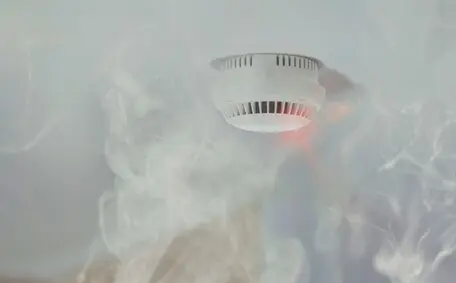
Smoke Alarm Maintenance Guide
Want to ensure your smoke alarm is in good working condition? We have a comprehensive guide on the best ways to maintain your smoke alarm throughout the year.
Read MoreFew things are more irritating than a blaring smoke alarm when there’s no fire. You might find yourself rushing around the house, desperately trying to find the source or waving a towel beneath a hardwired alarm to quiet it.
Ever wondered why your alarm might beep with no smoke in sight? Common culprits include low batteries, aging units, or dust and insects interfering with the sensors.
We’ll delve into the all-too-common causes of mystery smoke alarm beeping and guide you through some troubleshooting steps to pinpoint the issue.
Most importantly, we’ll offer straightforward solutions to get your space peaceful again. A smoke alarm is essential, but if it’s persistently beeping with no cause, its value drops significantly.
Smoke alarms are necessary, but their purpose is defeated if they are constantly false alarms. Understanding why your alarm may be beeping needlessly is the first step to stopping it. Here are some of the most common culprits:
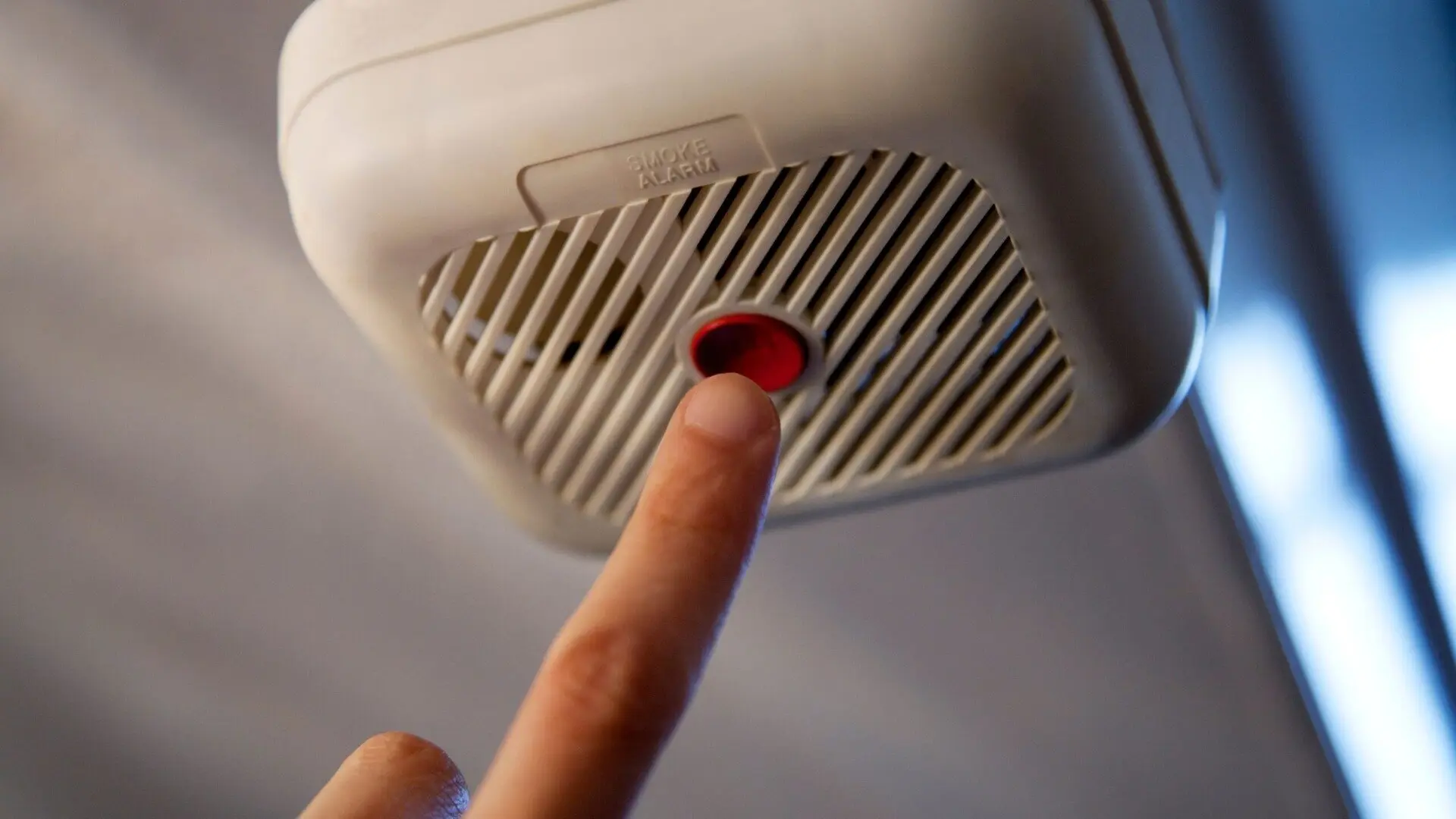
Chirping alarms often signal that the batteries are running low. The power dwindles gradually, leading to annoying beeping well before they completely die. It could also mean the battery is faulty, or the unit needs a reset. Try replacing them with new lithium batteries, which are best for smoke alarms. It’s worth noting, though, that some newer models with battery backups might still chirp a bit after you’ve replaced the batteries.
Smoke alarms last 8-10 years, depending on the brand. Units this old can start false alarms as sensors degrade. Check the manufacture date—replacement is recommended if it is near the end of its life.
Dust, debris, and small insects can obstruct photoelectric smoke alarm vents over time. To remove blockages, clean vents with compressed air, a small vacuum, and a soft brush.
Moisture can trigger ionisation alarms in very humid conditions. Temporary nuisances may clear up as humidity levels fall, but moisture-resistant photoelectric alarms reduce this issue.
If your smoke alarm won’t quit beeping, it’s time to roll up your sleeves for some troubleshooting. Pinpointing the root cause is essential for stopping the noise permanently. Here are some steps to consider:
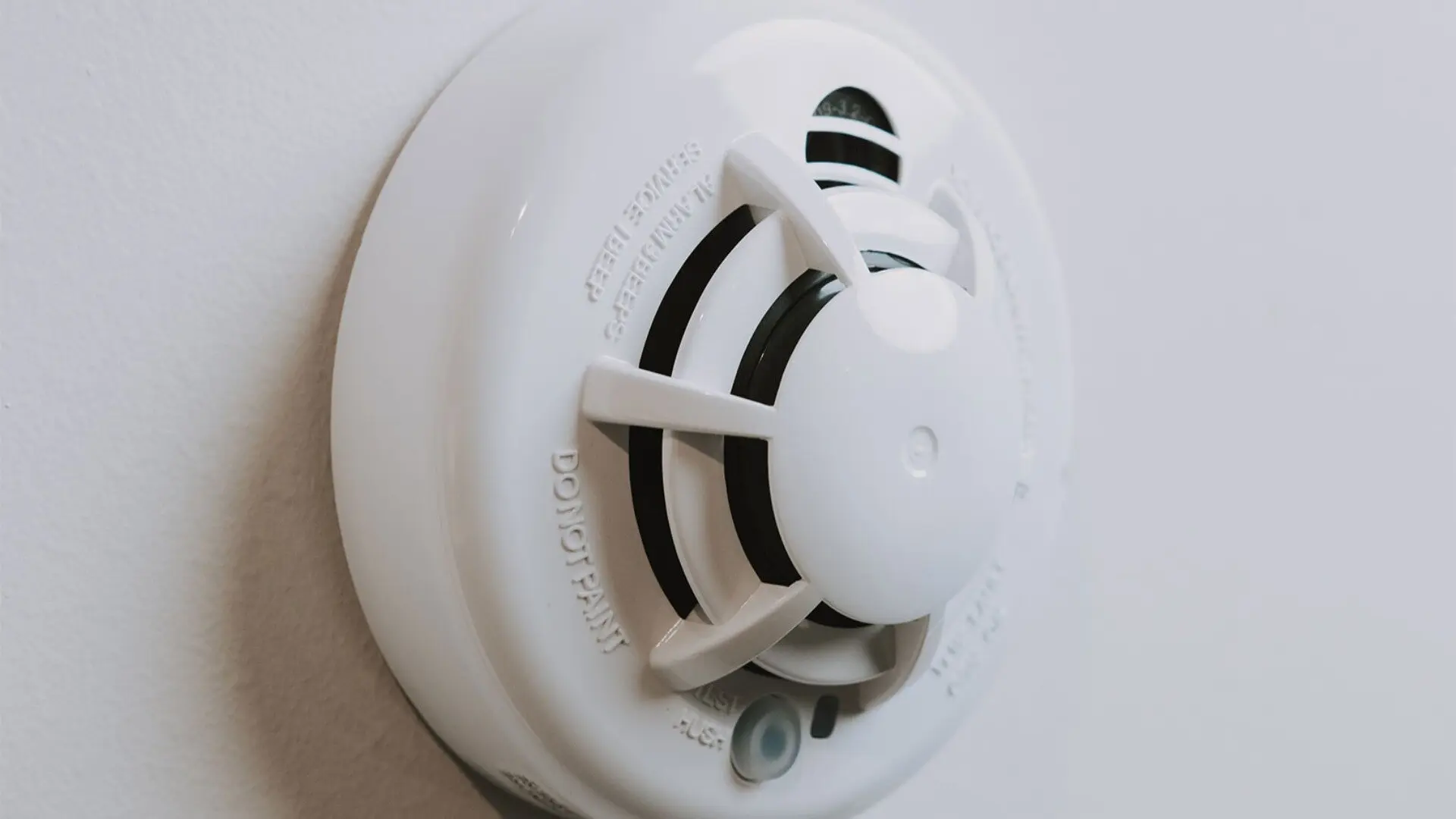
If your battery-operated smoke alarms keep beeping, you should check the inside of the device for battery obstructions. After you have finished removing any obstacles, make sure the battery drawer is completely closed. Examine batteries for corrosion or look for a low battery warning light. Replace any batteries that are over a year old with new lithium ones. Recheck the alarm after installation.
Smoke alarms last 8-10 years on average. Note the date on the back (often near expiration) and plan to replace old units. Over time, sensors degrade and cause false alarms.
Using a soft brush attachment, vacuum loose dirt and dust from both sides of a photoelectric alarm’s chamber vent. Check for dead insects inside and wipe clean with a damp cloth.
Once troubleshooting identifies the root cause of a smoke alarm’s unwanted beeping, it’s time to implement a solution to return to peaceful quiet. Replacing worn smoke alarm batteries, cleaning dusty vents, or installing a new alarm model if expired is often all it takes.
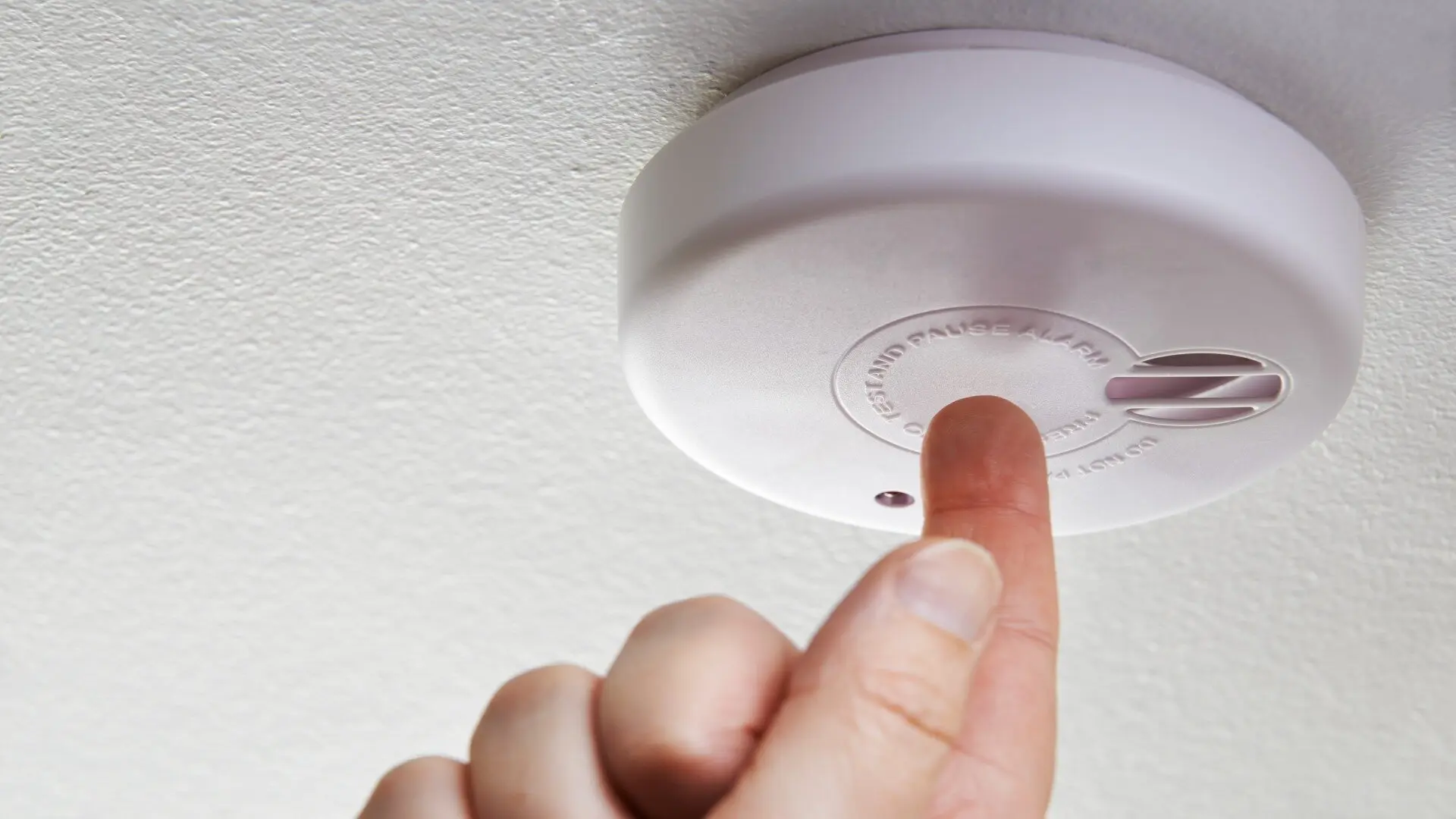
Thoroughly address the detected issue and re-test the alarm to confirm the noise has stopped. If beeping persists after ruling out typical problems, it may be time to replace the unit entirely with a new, 10-year sealed battery or hardwired photoelectric model.
Not only will this silence the noise, but it also grants extra years of safety with little maintenance. Verifying the fix worked brings relief. With a combination of deductive problem-solving and following through on responsive measures, unwanted smoke detector sounds can thankfully become a thing of the past.
As mentioned earlier, the usual reason for a smoke alarm chirping is an old battery. It’s quite impressive how quickly you can stop the noise with a bit of troubleshooting savviness. The first step is determining why your alarm is sounding unnecessarily.
Simple solutions like replacing batteries, cleaning vents, or updating a worn-out unit can bring back the peace and quiet you crave. If you’re still dealing with that relentless chirping despite all efforts, contacting the pros at Bright Force Electrical for additional help or to install new alarms is a sensible option.
Their licensed technicians can properly diagnose and address any smoke alarm issues, ensuring yours provides reliable safety without unnecessary disturbance. Don’t suffer from deafening beeps —contactBright Force Electrical for help today.
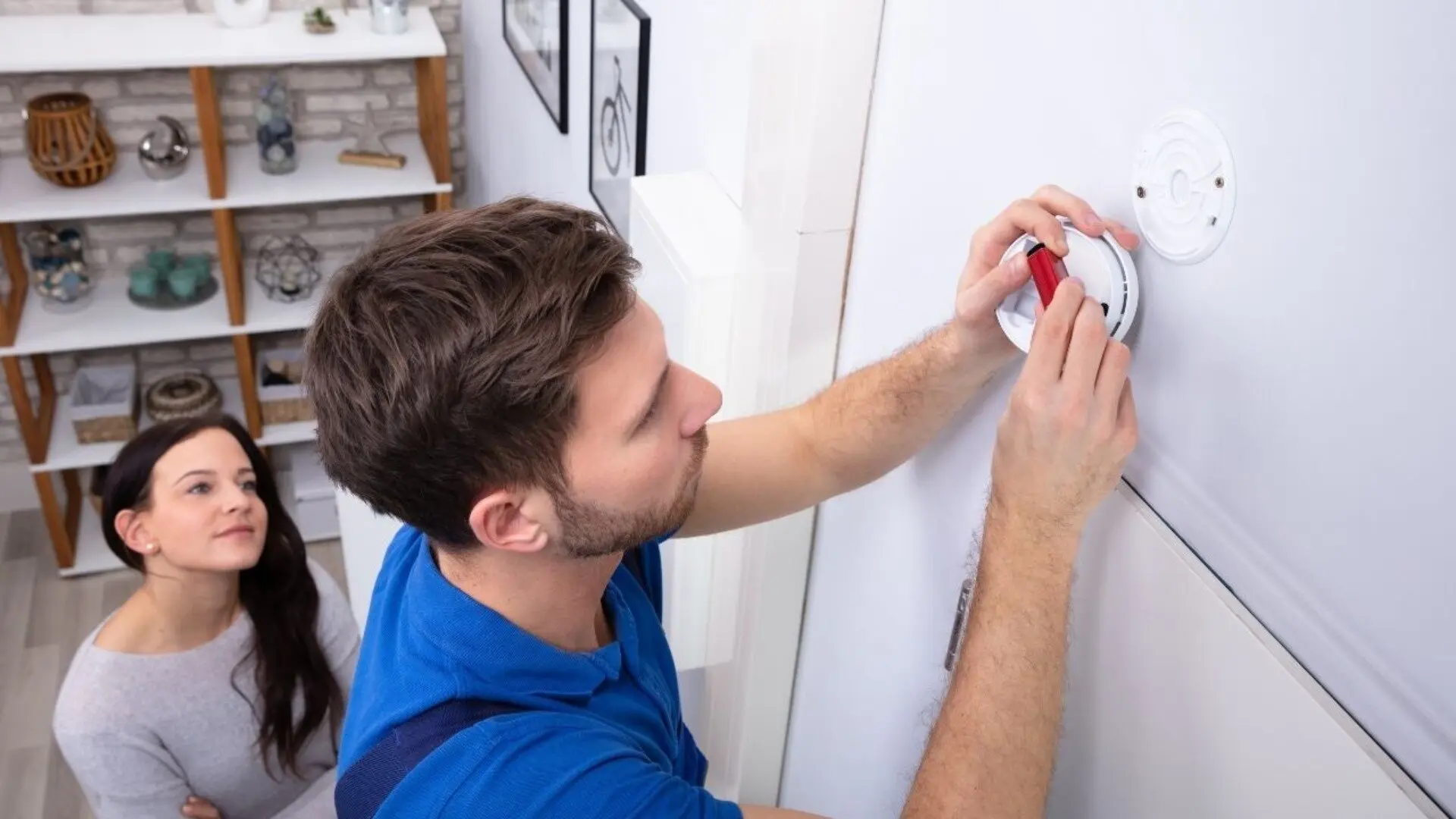
Smoke alarms should be replaced every ten years for maximum protection. The replacement date is often printed on the back of the alarm. Also, ensure they are installed in the right location per state laws.
If alarms mistakenly go off due to high humidity, use a moisture-resistant photoelectric alarm. You can also temporarily remove batteries until conditions dry out.
Check the date on the back—if it’s ten years old, it’s time for a replacement. Old alarms can also produce intermittent chirps or false alarms as sensors degrade.
If chirping continues after battery replacement, the alarm is malfunctioning and must be replaced. Don’t ignore hardwired smoke detectors that won’t stop chirping.
Dispose of old smoke alarms in your outside trash. Remove batteries before throwing them away to ensure they can’t potentially trigger false alarms in the garbage.
Did you enjoy reading our article “Smoke Alarm Beeping But No Smoke?”? We have many related articles you may also be interested in reading, like the below:
Want to ensure your smoke alarm is in good working condition? We have a comprehensive guide on the best ways to maintain your smoke alarm throughout the year.
Read MoreProper smoke alarm placement is key for early fire detection. This article covers recommended locations to install smoke detectors in your home and why it matters. Learn where experts advise placing smoke alarms near bedrooms, on each level, and in common areas for maximum protection.
Read MoreDiscover the different types of smoke alarms available in Sydney, Australia. From ionisation and photoelectric alarms to the effectiveness of dual-sensor alarms, learn how to choose the right smoke alarm for enhanced fire detection and safety.
Read MoreWe will call back as soon as possible.
